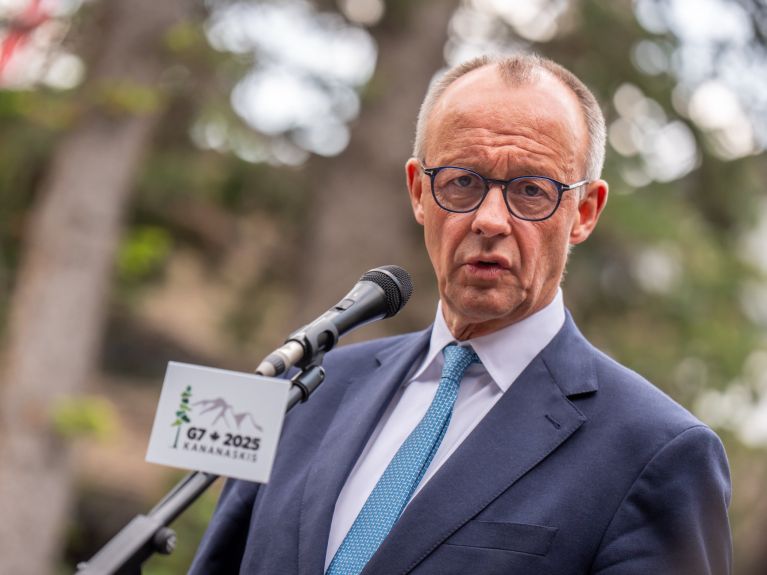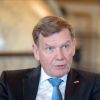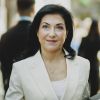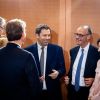“Germany is ready to act again as a strong partner”
Federal Chancellor Friedrich Merz wants to live up to the expectations that others have of the EU’s economically strongest and most populous country.

Chancellor, which areas do you plan to focus on in the coming years?
I want to give people in Germany a new sense of security and confidence. A Europe characterised by freedom and peace and a Germany in which all generations can enjoy living and working: that’s the guiding principle of my political work. Germany’s strength stems from our economic power. That’s why the highest priority is for us to boost the competitiveness of the German economy and finally bring about growth again. To achieve this, we are relieving the tax burden on business, investing in infrastructure and ensuring that hard work and effort are worthwhile again. The second big challenge involves ensuring Germany’s defence capability – with a strong Bundeswehr and in close coordination with our partners in Europe and worldwide. We are living at a time when the world order is undergoing a fundamental shift. One important job for the German government is to shape this world in a way that reflects our interests. And last but not least, we are fundamentally changing course on migration policy: Germany’s strength lies in our open society. At the same time, this requires borders that we must protect. And rules that we must enforce.
In agreement with your coalition partner, you have created a National Security Council in the Federal Chancellery. What will be its role?
These days, our security faces multidimensional challenges: at home and abroad, from economic dependencies, hybrid attacks and threats to our critical infrastructure. The National Security Council will be an important element of our new security policy because overarching questions of security will be discussed and jointly decided there. To this end, we are pooling expertise from the federal ministries and from the security agencies - for example to obtain a clear picture of the current situation. We are also drawing on the specialist knowledge of experts in think tanks and at universities. Our goal is to ensure that we are better prepared for crises and can act more quickly and make more informed choices in crisis situations. Thus the National Security Council will also contribute to a strategic decision-making culture that we urgently need in Germany - in politics, business and society.
We can and want to be a leading middle power.
In your first government statement, one area you emphasised was foreign policy . Why was that important to you?
The Russian war of aggression against Ukraine will soon have been underway for three and a half years. All over the world, authoritarian states are attempting to suppress the influence of liberal democracies. At the same time, some elements of what we have become used to in our transatlantic relations are being put to the test. What I want to say is that in the coming years it will be a question of securing the future of the free world. And how this future looks will also depend on our decisions in Germany. We are the economically strongest and most populous country in the European Union. Which means that other member states have certain expectations of us. We want to live up to this responsibility. That’s why it was important to me to send out a clear signal as soon as we formed the government: namely that Germany is ready to act again as a strong partner. Standing united with our European allies, we will do everything in our power to secure peace in Europe. We are ready to assume leadership responsibility. We have been a dormant middle power for too long. We can and want to be a leading middle power.
Strength deters aggressors, weakness invites aggressors.
The first places you visited as chancellor were Paris and Warsaw. What role should European cooperation play in the coming years?
A united Europe is the greatest asset we have: for freedom, peace and prosperity. That is truer today than ever. The European single market offers huge growth potential that we want to take much greater advantage of. It is equally important for us to better protect our shared outer borders and work far more closely on security and defence. I encountered widespread agreement on all these issues in Paris and in Warsaw, as well as among many other friends and allies. We are all very much aware that strength deters aggressors, while weakness invites aggressors. Only a strong and united Europe that stands together as a community with shared values and interests can interact on an equal footing with partners such as the USA or competitors such as China. And that’s exactly what our objective is.


